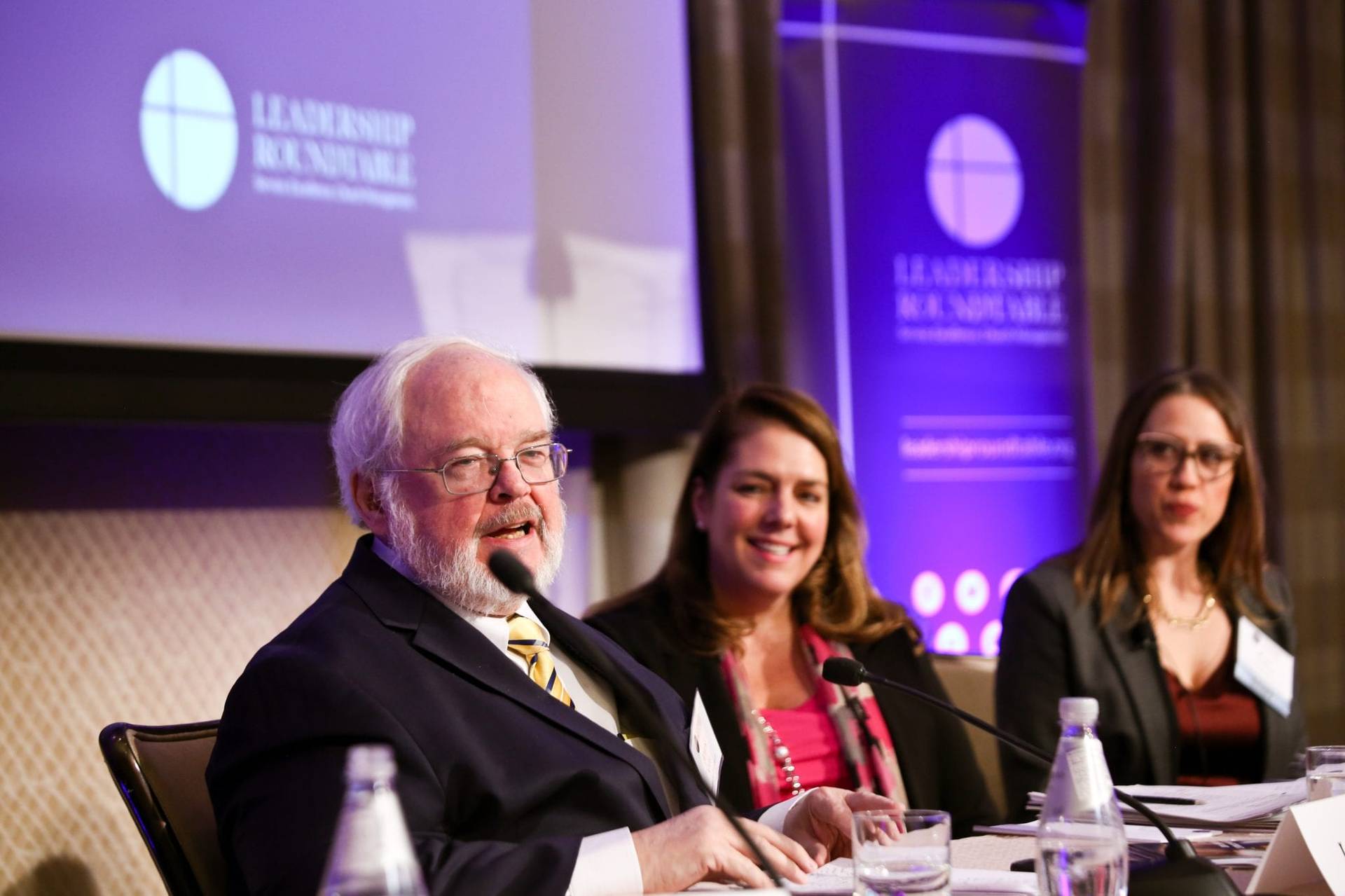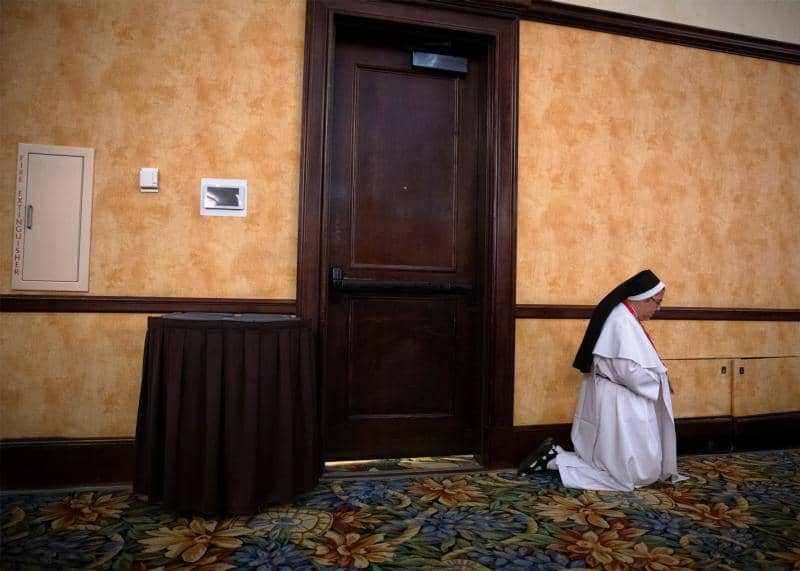ROME – In the abstract, women would seem unlikely candidates to become lead actors at Pope Francis’s high-stakes summit on clerical sexual abuse this week, since it’s fundamentally a gathering of bishops who are, by definition, all male.
Yet improbably enough, the few women who are on hand in and around the Vatican this week are taking star turns.
“We strongly believe that open and transparent discussions with (women) is the first step in healing the Church,” Zuzanna Flisowska, a representative of the “Voices of Faith” organization, told journalists in a news conference earlier this week, setting the stage for what would follow.
During the Feb. 21-24 summit, three out of nine keynote speeches have been given by women, two of whom are mothers. Observers were struck by the forceful rhetoric they heard, including blunt references to the “hypocrisy” and “mediocrity” revealed by the abuse scandals and the “disgraceful, shameful” situation in which the Church finds itself.
On Friday evening, the last speech of day two of the summit was given by Linda Ghisoni, a 53-year-old wife, mother and canonist who serves as an undersecretary for the Vatican department for Laity, Life and Family, and also is a consultor to the Congregation for the Doctrine of the Faith.
Ghisoni spoke of the role of the laity in promoting accountability, which has been a major point of discussion since the latest wave of scandals of abuse and cover-up erupted in the Church last summer.
Offering her perspective as “a lay woman, wife and mother,” Ghisoni argued that laypersons ought to have a greater role to play, but their presence doesn’t necessarily guarantee things will get better.
RELATED: Lay woman addresses bishops during Vatican sex abuse summit
After her speech, Francis, in off-the-cuff remarks, said inviting Ghisoni to speak was not an act of “ecclesial feminism,” which he said realistically boils down to “machismo with a skirt,” but it was symbolic of the contribution women have to offer.
“I heard the Church speak of itself” during Ghisoni’s talk, he said, adding that to invite a woman to speak about the wounds of the Church “is to invite the Church to speak of itself, of the wounds that she has.”
“This, I believe, is the step that we must take with a lot of strength: woman is the image of the Church, which is woman, spouse and mother. It’s a style,” he said, adding that without this feminine touch, “we would speak of the People of God but as an organization, perhaps a union, but not like a family given birth to by mother Church.”
While Francis’s words were undoubtedly well-intended, skeptics speaking sotto voce pointed out that the most effective way of demonstrating one has a problem with women is to make a point of drawing attention to them every time they get the microphone.
After Ghisoni’s speech Thursday afternoon, the first keynote speech in Friday’s morning session was given by Sister Veronica Openibo, a Nigerian and the first African to serve as the leader of the Society of the Holy Child Jesus.
RELATED: African nun tells summit that clerical abuse is a ‘serious issue’ there too
Openibo didn’t waste time in getting to the point, speaking out against clericalism and saying she has heard many fellow Africans and also Asians say that sexual abuse is a Western problem.
“I worked throughout Nigeria in the area of sexuality education for nine years and heard stories and counselled many people,” she said, adding that massive regional problems in the Global South such as poverty, illness, war and violence “do not mean that the area of sexual abuse should be downplayed or ignored…the Church has to be pro-active in facing it.”
Similarly, Friday afternoon’s keynote speech was given by another wife and mother, Valentina Alazraki, a longtime Vatican journalist working for Mexican television network Televisa.
Alazraki, who has covered five pontificates and who has participated in some 150 international trips with the past three alone, spoke about the importance of communication in helping to foster transparency on the abuse issue.
Speaking from her perspective as a journalist, wife and mother, Alazraki said the sexual abuse of a minor “is as contemptible as is covering up the abuse.”
Communicating “is a fundamental duty because, if you fail to do so you automatically become complicit with the abusers,” she said, adding that Catholic faithful “do not forgive the lack of transparency, because it is a new assault on the victims. Those who fail to inform encourage a climate of suspicion and incite anger and hatred against the institution.”
Each of these women, Ghisoni and Alazraki in particular, are arguably invested in the issue of child protection at a deeper level, given that they either have children themselves or work with them on a daily basis.
The idea that mothers may have higher stakes in the discussion than anyone else was illustrated in a moving story shared by Cardinal Blase Cupich of Chicago on Friday morning.
Cupich said that while celebrating Mass in December to mark the 60th anniversary of a fire at Our Lady of the Angels Catholic elementary school in Chicago, which killed 92 children, he was approached by an elderly mother whose nine-year-old daughter perished in the blaze.
The woman, he said, was clutching a small, decades-old holy card with her daughter’s picture that had been produced for the funeral. Seeing her so attached to her daughter’s memory, Cupich said, “puts us in touch on a profoundly human level with the sacred bond a parent has with a child.”
After the Mass, Cupich said the woman approached him again and told him how consoled she was that six decades later, the Church had not forgotten her daughter. She then placed the card with her daughters’ picture in his hands, “entrusting her child to the Church, whom she recognized as Pietà, a loving mother,” he said.
Though critics no doubt will object that women were significantly under-represented at the summit, their impact despite small numbers could perhaps be seen as a start, at least, to the open and transparent discussions Flisowska said are necessary for healing.














